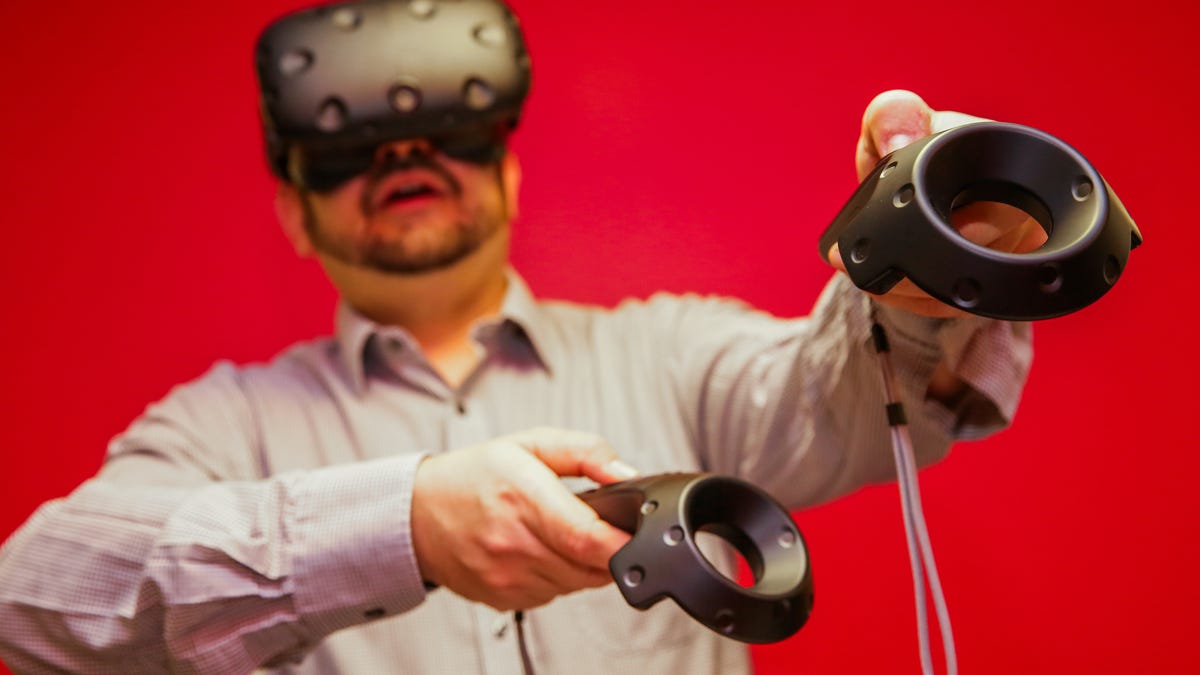VR is not dying, insists manufacturer of VR headset
HTC has put out a blog post insistent that VR has a bright future ahead, and to not listen to all signs to the contrary.

The HTC Vive was first released in 2016.
VR is fascinating tech and continues to evolve. But it's also hit a wall for consumer adoption, leading to pretty disappointing sales.
Maybe this is what led HTC to publish this blog post yesterday, entitled "Think VR is dying? It's just getting started." The post argues that current dire analyst forecasts for VR should be disregarded, and that reports on plummeting Vive sales are due to the company running short of supply on original HTC Vive headsets. The post also points to a recent IDC report from Q1 2018 that shows HTC Vive leading VR companies in overall revenue market share, and that Vive leads China's VR market (for standalone VR hardware, of which there are few players).
Any time a company has to write a story insisting that an industry isn't dying, it doesn't look great. It's true that VR is going to continue to evolve, with more advanced standalone hardware from Oculus and Qualcomm (and most likely other players) in the next year or years. HTC just released its expensive and enterprise-targeted HTC Vive Pro headset this spring, and is planning on expanding its standalone VR headset, Vive Focus, worldwide this fall.
HTC's overall sales have been plummeting, as much as 68 percent in June. And, the reports in HTC's post hardly reveal specific numbers or sales figures.
The current VR hardware out there right now is aging, and maybe the novelty of VR is starting to wear off...or was never there in the first place. It's unclear how much of a dent standalone VR hardware from Oculus and Lenovo has made. HTC might just be feeling the heat because, well, people aren't tremendously interested in buying VR headsets at the moment: IDC has reported that headset shipments are down 30.5 percent compared to last year. After all, Vive's largest focus lately has been on enterprise.

